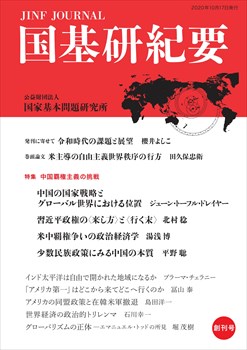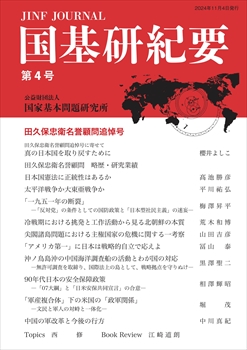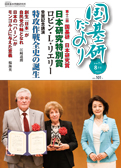2007年の米下院慰安婦決議にあたり議員らが参照した資料の一つが米議会調査局(Congressional Research Service)のレポートだった。
その議会調査局が、2014年9月24日付で「日米関係-議会が考えるべき諸問題」と題した新レポートを出した。
「慰安婦問題」の項を見ると、反日活動家の文のような扇情的表現はないが、forced prostitutes(強制された娼婦)、victims(犠牲者)といった、不正確な認識に基づく用語が使われ、全体として歪曲された内容になっている。
長年、議会調査局で日本を中心に東アジアを担当してきたラリー・ニクシュ氏(今は退職)は、北朝鮮問題では日本の保守派とおおむね認識を共有し、私も個人的に実のある意見交換を続けてきた。
しかし、慰安婦問題については、彼の認識は、いわば「普通に偏向」している。ニクシュ氏は、日本語はできず、ほとんどのアメリカ人同様、慰安婦問題に関する知識ももっぱら英語の資料から得てきた。外務省の英語版サイト、朝日新聞英語版、二大通信社である共同通信、時事通信の英語配信ニュースなどが、彼にとっての主な「日本側」ニュース・ソースだったと言えよう。
朝日新聞、外務省の問題点については、様々な角度から批判され、本「国基研ろんだん」でも数度にわたり取り上げてきた。
その点、共同通信、時事通信の英語版については、日々世界に向けて配信されるだけに大きな影響力を持ちながら、十分な批判に晒されず、いわば放置されてきたと言える(私を含め、散発的な指摘はあったが)。
しかし、米議会調査局レポートの執筆者らにも、おそらく「日本の通信社ですら、日々、慰安婦は性奴隷とするニュースを流し続けているではないか」との意識があろう。もはや放置は許されない。
以下、実例を挙げておく。
例えば、2014年9月24日付の「1993年の謝罪前の『慰安婦』インタビューを団体が公開」と題する共同配信記事は冒頭、慰安婦を「強制された性奴隷の犠牲者」(victims of forced sexual slavery)と表している。
8月30日付の「国連が第二次大戦中の『慰安婦』について日本に新たな呼びかけ」と題するAFP・時事配信記事も、冒頭、日本が「韓国やその他アジアの女性を強制的に性奴隷として働かせた」(forcing women from Korea and elsewhere in Asia to work as sex slaves)と書いている。
いずれも、朝日新聞が吉田証言をめぐる「誤用」を認めた後の記事だが、それ以前と全く変わらぬ書きぶりである。共同、時事ともに、日本国内向けの記事ではやや抑えた表現になっているが、英語版は、韓国紙と見まがうほどの歪曲ぶりである。
メディアの責任に関しては、朝日だけでなく、現在進行形で誤った認識を世界に拡散し続ける共同、時事についても追及していかねばならない。
以下、英語の資料を掲げておく。米議会調査局レポートの「慰安婦」部分につづき、上に引いた共同と時事の配信記事である。
Congressional Research Service
Japan-U.S. Relations: Issues for Congress
September 24, 2014
……Comfort Women Issue
Abe’s statements on the so-called “comfort women”—forced prostitutes used by the Japanese imperial military during its conquest and colonization of several Asian countries in the 1930s and 1940s—have been criticized by other regional powers and the U.S. House of Representatives in a 2007 resolution.In the past, Abe has supported the claims made by many on the right in Japan that the women were not directly coerced into service by the Japanese military. When he was prime minister in 2006-2007, Abe voiced doubts about the validity of the 1993 “Kono Statement,” an official statement issued by then-Chief Cabinet Secretary Yohei Kono that apologized to the victims and admitted responsibility by the Japanese military.
As the U.S. House of Representatives considered H.Res. 121 (110th Congress), calling on the Japanese government to “formally acknowledge, apologize, and accept historical responsibility” for forcing young women into military prostitution, Abe appeared to soften his commentary and asserted that he would stand by the statement. (The House later overwhelmingly endorsed the resolution.)
In recent years, Abe periodically has suggested that his government might consider revising the Kono Statement, a move that would be sure to degrade Tokyo’s relations with South Korea and other countries. Since the days after Abe’s election in December 2012, Abe’s Chief Cabinet Secretary Yoshihide Suga has said that the Abe government would abide by the Kono statement.
However, in June 2014, in response to a request by an opposition party Diet member, the Abe government released a study that examined the document, concluding that the statement had been crafted in consultation with Seoul, implying that the document was not based solely on historical evidence. Critics claim that the study discredits the apology and gives further proof of Tokyo’s (and specifically Abe’s) revisionist aims.
The issue of the so-called comfort women has gained visibility in the United States, due primarily to Korean-American activist groups. These groups have pressed successfully for the erection of monuments commemorating the victims, passage of a resolution on the issue by the New York State Senate, and the naming of a city street in the New York City borough of Queens in honor of the victims.
Japan Times
Group releases ‘comfort women’ interviews from before 1993 apology
Kyodo, Staff Report
Sep 16, 2014
SEOUL – A Seoul-based group has released footage of interviews conducted by the Japanese government with victims of forced sexual slavery in World War II to produce the 1993 apology known as the Kono Statement.……
Japan Times
U.N. issues fresh call to Japan over World War II ‘comfort women’
AFP-JIJI
Aug 30, 2014
GENEVA – A U.N. watchdog issued a fresh call Friday to Japan to take full blame for forcing women from Korea and elsewhere in Asia to work as sex slaves during World War II.……






